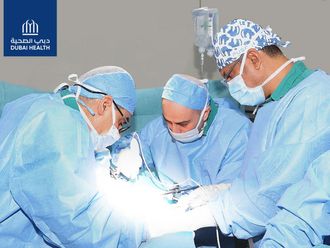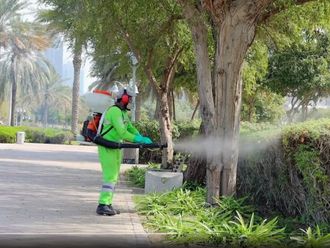Dubai: Health authorities are tackling adverse drug reactions among patients with the establishment of a department that will monitor side effects' cases and educate the public and the private sector.
The central pharmaceutical services department, set up last week by Dubai Department of Health and Medical Services (Dohms), aims to improve and regulate pharmaceutical services in its hospitals and clinics, including a surveillance and reporting system for adverse drug reaction cases.
Adverse drug reactions, defined as harmful reactions to drugs due to allergies, interaction with another drug or undocumented side effects, range from minor, such as decreased effectiveness of the medicine, to major, such as injury or death.
However, the department's authority on surveillance and reporting system will only cover cases received at Dohms facilities.
Dr Ali Sayed Hussain, head of the new department, told Gulf News that the surveillance system was important to ensure the safety of the public. "It's very important to have a reporting system for drug-drug interaction cases and adverse drug reactions," he said.
He added that adverse drug reactions were common, partly due to some pharmacists' practice in selling prescription medicines over the counter.
"We are sure it happens. But we don't see any cases right now, because there is no reporting system," he said.
Adverse drug reactions afflict millions of people around the world, with four of them reported annually in the United States alone.
Some experts believe the figures are higher as many cases were explained away by other factors, including the advanced age of the patient or severity of the disease.
Dr Hussain said the requirement was important as many pharmacists did not know enough about drug interactions.
"For example, if a patient takes erythromycin [an antibiotic] with cisapride [to treat acid reflux disease], he could die," he said.
Cisapride is not available over the counter but erythromycin can be purchased over the counter.
The simplest item, be it prescription medicine or herbal supplement, can cause an adverse reaction in people if they interact with each other.
Herbal supplements that contain ginseng, ginger, garlic or ginkgo biloba decrease or enhance the effects of blood thinning medicine, warfarin. This medicine is commonly used to treat blood clots, such as in pulmonary embolism in the lungs.
Antibiotic erythromycin, used to treat respiratory tract infections and syphilis, also interacts adversely with warfarin.












